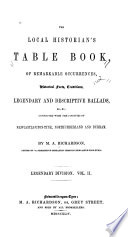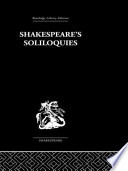 How that might change his nature, there's the question: It is the bright day that brings forth the adder; And that craves wary walking. Crown him? — that? And then, I grant, we put a sting in him, That at his will he may do danger with. How that might change his nature, there's the question: It is the bright day that brings forth the adder; And that craves wary walking. Crown him? — that? And then, I grant, we put a sting in him, That at his will he may do danger with.  The Morality of Shakespeare's Drama Illustrated - Page 399by Mrs. Griffith (Elizabeth), Elizabeth Griffith - 1775 - 528 pagesFull view The Morality of Shakespeare's Drama Illustrated - Page 399by Mrs. Griffith (Elizabeth), Elizabeth Griffith - 1775 - 528 pagesFull view - About this book
 | 1844 - 440 pages
...vivified by the heat of the sun, and recalled by the same genial warmth from their winter torpidity. " It is the bright day that brings forth the adder, And that craves wary walking." Julius Ciesar, Act ii. Scene i. The application of gentle and continued warmth will, at any period,... | |
 | 1844 - 858 pages
...wind, Wakens the ether and buds the thorn ; " or as Shakespeare has enshrined the vernal observation, " It is the bright day that brings forth the adder, And that craves wary walking."* J. Hardy's Col. ODE ON ATHELSTAN'S VICTORY, The spinsters and the knitters in the sun, And the free... | |
 | Michael Steppat - 1980 - 646 pages
...of Julius Caesar: He would be crowned; How ^ that might change his nature, there ' s the question. It is the bright day that brings forth the adder, And that craves wary walking. Since the quarrel Will bear no colour for the thing he is, Fashion it thus; that what he is, augmented,... | |
 | Robert S. Miola - 2004 - 264 pages
...animal imagery that reflects ironically upon his high-minded intentions and noble resolutions. He muses: "It is the bright day that brings forth the adder, / And that craves wary walking" (II.i. 14-15). Worrying about putting a "sting" in Caesar by crowning him, Brutus thinks him "as a... | |
 | Wolfgang Clemen - 1987 - 232 pages
...But for the general. He would be crown 'd: How that might change his nature, there's the question. It is the bright day that brings forth the adder,...that craves wary walking. Crown him? — that;-— 15 And then, I grant, we put a sting in him, That at his will he may do danger with. Th1 abuse of greatness... | |
 | William Shakespeare - 1996 - 1290 pages
...But for the general. He would be crown'd: — How that might change his nature, there's the question: 3 sting in him, That at his will he may do danger with. Th'abuse of greatness is, when it disjoins Remorse... | |
 | Stephen Orgel, Sean Keilen - 1999 - 426 pages
...his own behavior in the coming action, for which "to spurne at him" is the final choice. Similarly: It is the bright day, that brings forth the Adder, And that craues wane walking: Crowne him that, . . . (JC ll. fi30-3i, Hinman p. 722I** The comma after "day"... | |
 | R. A. Foakes - 2000 - 332 pages
...him, But for the general. He would be crown'd: How that might change his nature, there's the question. It is the bright day that brings forth the adder,...Crown him? — that; — And then, I grant, we put a sting in him, That at his will he may do danger with. Th'abuse of greatness is when it disjoins Remorse... | |
 | William Shakespeare - 2000 - 248 pages
...crowned. How that might change his nature, there's the question. It is the bright day that brìngs forth the adder, And that craves wary walking. Crown him ! - that! And then, I grant, we put a sting in him That at his will he may do danger with. Th "abuse of greatness is when it disjoins Remorse... | |
 | Charlotte Brontë - 1995 - 866 pages
...'wicked book' on the authority of the Quarterly Review (?WSW 21.9.1849). 9. Cf. Julius Caesar, II. i. 14, 'It is the bright day that brings forth the adder | And that craves wary walking', and Robert Burns, 'On the late Captain Grose's Peregrinations through Scotland', stanza 1: If there's... | |
| |